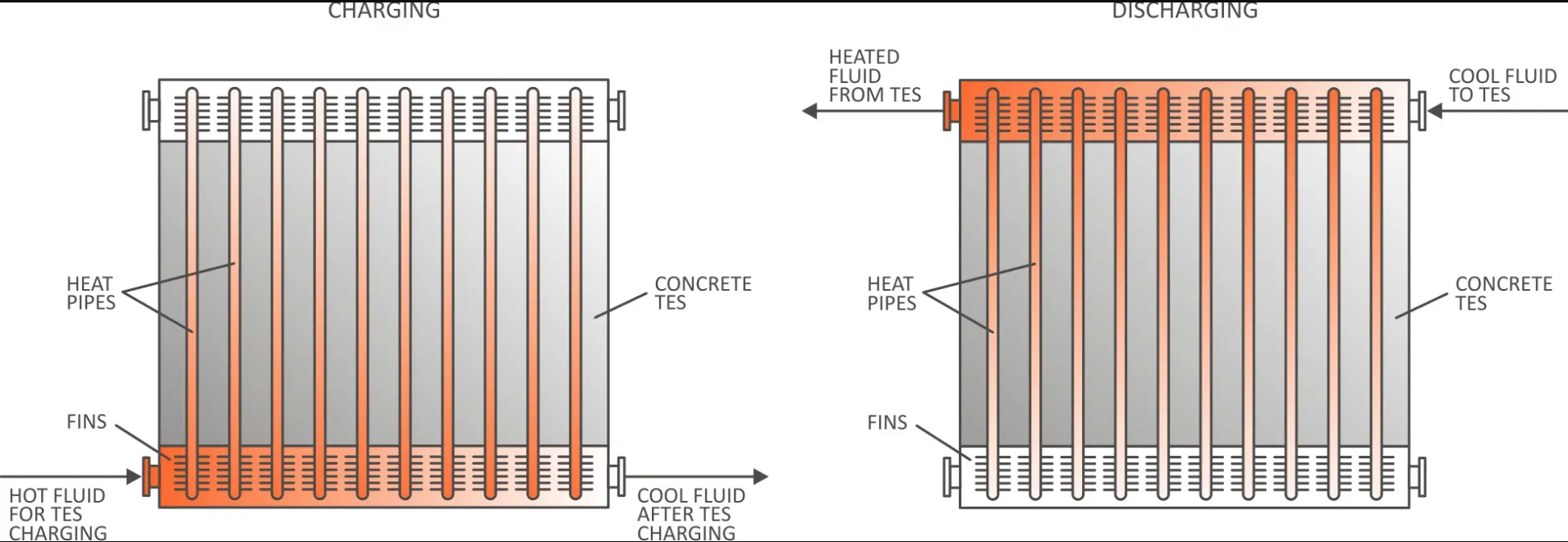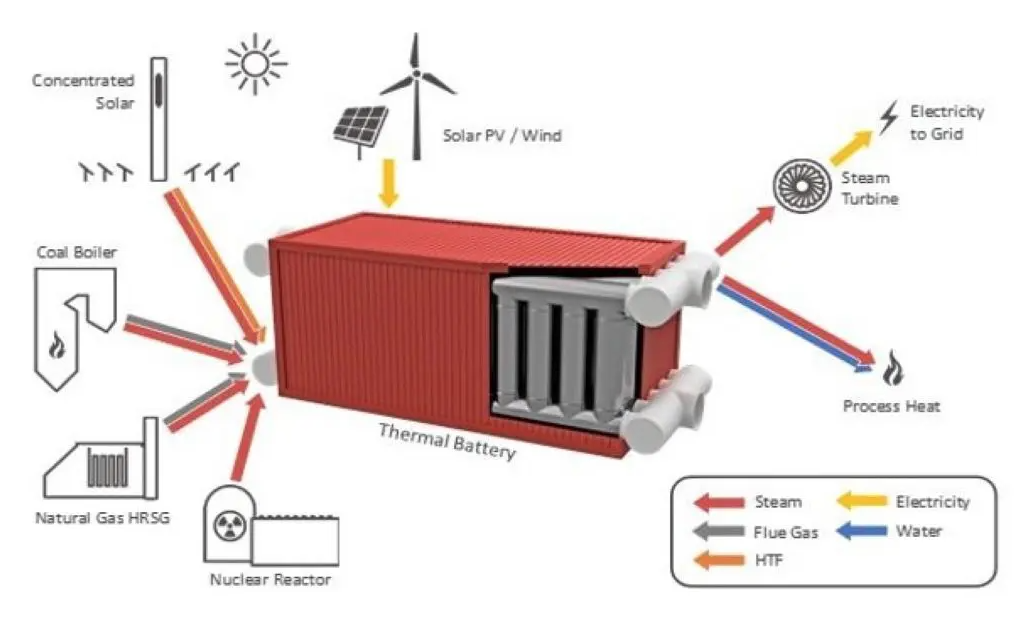Lehigh Thermal Battery is market ready
Coming from Pennsylvania and more precisely from the University of Lehigh, the new modular, economical and efficient thermal battery for decarbonisation of the energy system. The project is a collaboration between the Energy Research Centre and the University’s ATLSS Engineering Research Centre together with experts from Advanced Cooling Technologies, and combines two different technologies currently used in thermal storage: those focused on latent heat transfer and those based on sensitive heat transfer.
The latent heat approach takes advantage of the amount of heat energy exchanged during a material status change, such as solid to liquid or liquid to gas. Sensible heat refers instead to the thermal energy that is exchanged between two bodies producing a temperature difference between them but without causing phase transitions.
Read also The domestic thermal battery that will free millions of homes from gas
Each of these approaches has advantages and disadvantages: the first exploit the so-called “phase change materials” and allows you to store and transfer large amounts of heat thus giving high energy density systems. The second is cheaper; solid materials such as cement or pourable ceramics can be used that have a low price and good thermal conductivity, or simply water or air.
The new modular thermal battery “made in USA”

Lehigh scientists have developed a new thermal battery – the Lehigh Thermal Battery – that combines the best of both techniques. The technology employs engineered cement materials and radiators in a combination of high efficiency.
“Lehigh Thermal Battery’s technology is innovative because it is modular, designed for independent energy input/output flows during charging/discharging and achievable with the help of radiators,” says project principal researcher Sudhakar Neti. Moreover, the process of phase change of the fluid that flows inside the pipes of the radiator allows the heat to quickly enter and exit the concrete block.
The 150 kWh prototype built at the Energy Research Center was tested using compressed air at 480 ºC. The average power rates achieved during charging and discharging were 16.4 kwt and 19.8 kwt respectively. The new modular thermal battery is capable of operating with heat or electricity as a charging input and according to the team today is already ready for the market.
